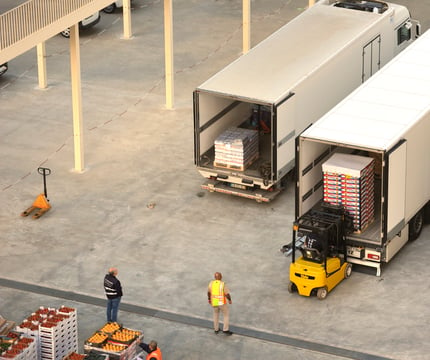 While many companies have struggled during the pandemic, a few have thrived. While some of these companies are the ones you’d expect -- like Netflix, Amazon, and Walmart -- there have also been some unexpected winners, like Beyond Meat.
While many companies have struggled during the pandemic, a few have thrived. While some of these companies are the ones you’d expect -- like Netflix, Amazon, and Walmart -- there have also been some unexpected winners, like Beyond Meat.
How did a plant-based meat substitute company manage not just to weather the pandemic, but to thrive? Because -- even before the pandemic -- they understood the importance of building safety and sustainability into the structure of their supply chain.
So, when the pandemic accelerated consumer concerns about worker safety and product sustainability, other companies with large supply chains suffered.
But Beyond Meat has continued to be successful and profitable because of steps they took prior to the pandemic. When the pandemic hit the meatpacking industry with major downtime, Beyond Meat, with its diversified supply chain focused on safety and sustainability, was prepared to step into the gap and meet consumer needs.
Here are five lessons other companies can learn from Beyond Meat’s success during the pandemic.
1. Safety
The pandemic has shown that certain industries, such as meatpacking, face special challenges. Not only are meatpacking and packaging plants very labor-intensive, but workers there also stand very close together -- a major problem during a pandemic.
Beyond Meat already had safety structures in place that allowed workers to stay safe. They own their own plants, have relationships with their co-packers, and run an innovation center in Southern California. Beyond Meat also responded with safety measures when the pandemic hit, utilizing an internal task force to prevent the spread of coronavirus in any of its plants and enforcing greater social distancing measures among employees.
The result? Beyond Meat has had no coronavirus outbreaks, which means more uptime. More uptime means that when meatpacking companies were struggling, Beyond Meat was prepared to step in and seamlessly supply a product that many consumers considered a comparable substitute.
2. Diversified Supply Chain
A year ago, Beyond Meat tripled their production capacity and diversified their suppliers while ramping up to produce burgers for fast food restaurants. So even when the pandemic closed restaurants, Beyond Meat still posted a 38% profit margin. That’s largely because they have been shifting and diversifying their business to reflect consumer habits, moving more of their focus to retail.
Beyond Meat also stayed profitable by diversifying their ingredients. They source ingredients from many suppliers from all around the world, and have worked to improve their backup sources. And to continue reaching more retail customers during the pandemic, they began offering value packs with more patties at a lower cost per serving, hoping to appeal to a wider base of consumers.
Even though the pandemic meant that Beyond Meat had to pivot by repackaging some of their restaurant product for customer retail venues, their already-diversified supply chain meant that they were prepared to remain profitable when the pandemic arrived.
3. Advance Planning
Well before the pandemic, Beyond Meat had been working hard to drive their prices down to be more comparable to meat. They did this by taking steps like discounting and increasing supply chain efficiencies to decrease costs.
Not only did Beyond Meat spend the last year pushing their product into retail; but their supply chain was also prepared to make an even bigger push into retail when the pandemic arrived. When meat not only became scarce, but soared in price, Beyond Meat was already more than prepared to step in and fulfill consumer demand with a comparable product.
4. Focus on Sustainability
Beyond Meat has aggressively marketed its sustainability as compared to beef as one of its primary selling points. As consumers have become even more concerned with sustainability during the pandemic, this decision has paid off.
5. Supply Chain Transparency
Unlike many companies who don’t know their low-tier suppliers, Beyond Meat had clear insight into all of their suppliers and co-packagers. This top to bottom knowledge made it much easier for them to ensure that their supply chain wouldn’t be taken down by illness, or any other unexpected events.
Beyond Meat’s success in the midst of pandemic makes one thing clear: no matter your industry, sustainability has to be built into the entire supply chain process.
Through preparedness and focus on a flexible, safe, and sustainable supply chain, Beyond Meat was able to take the pandemic in stride and succeed while so many other businesses faltered. Supply chains are a massive component of any company’s footprint: that’s why safe and sustainable power sources are an important part of the supply chain.


 Ryan Lynch
Ryan Lynch
